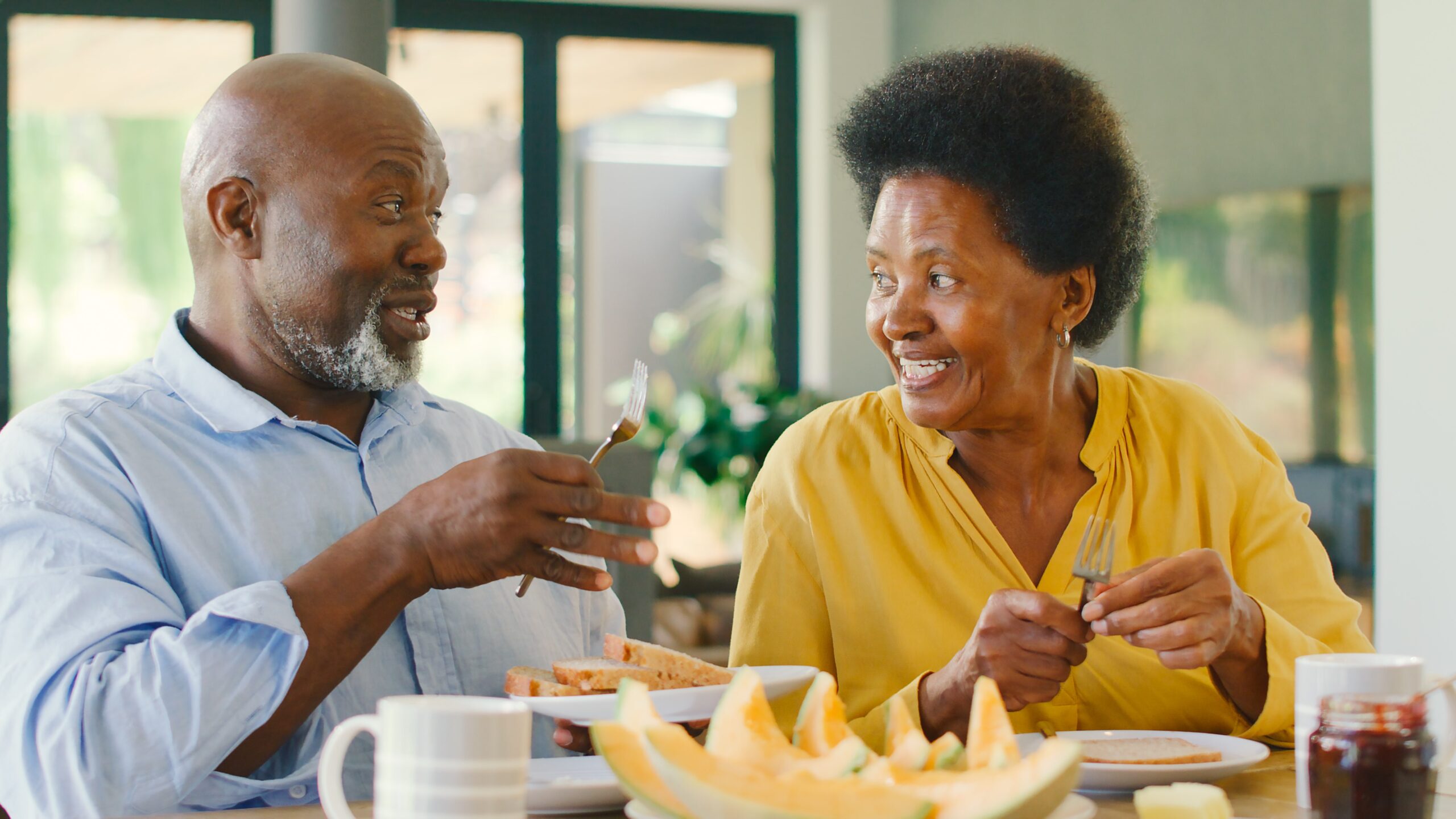November 13, 2025

Nutrition Tips for Seniors: How Small Diet Changes Can Improve Energy and Longevity
Healthy eating is essential throughout our lives, but it is especially crucial for seniors. If you regularly indulge in unhealthy food and feel the effects in your later years, it’s never too late to make a change. Even a small change can do wonders for energy and longevity.Not sure where to start? This article provides dietary guidelines for older adults, ensuring they get the nutrition they need.
Planning the Optimal Diet for Elderly Needs
The following tips will help you plan healthy meals.
Consider the MyPlate Diagram
MyPlate.gov is an excellent resource for healthy eating. It is famous for its diagram of a plate showing a healthy combination of protein, grains, fruits, vegetables, and dairy. The image should inspire people of all ages to consume nutritious foods.
How Many Calories Should I Consume Per Day?
Generally, women 60 or above require 1600 to 2000 calories per day, while geriatric men in this age group need between 1800 and 2400 calories per day. These numbers can vary depending on your height and level of physical activity.
Check food labels to determine how many calories are in each serving. Track how much you consume at each meal to reach your calorie goals. This type of meal planning prevents obesity, reduces the risk of various chronic conditions, and increases lifespan.
Special Nutritional Needs of Adults Over 60
Nutritional needs change over time, putting greater importance on certain nutrients. For example:
- Loss of muscle mass is a common age-related concern. Seafood, dairy, and fortified soy alternatives can help maintain strong muscles and reduce the impact of aging.
- Bone mass reduction is another issue common to senior adults. Ensure your diet includes calcium and vitamin C to prevent osteoporosis and related issues.
- Aging can negatively affect the body’s ability to absorb vitamin B12. Senior citizens should consume protein to meet their B12 needs.
- An older adult may lose their sense of thirst. To prevent dehydration, drink plenty of water and sugar-free beverages regardless of feeling thirsty.
Stay at Home Healthcare Can Help
Nutrition is so important to seniors, but many older adults face challenges in reaching their nutritional goals. They may be dealing with mobility issues and other disabilities that make it difficult to prepare, shop for, and consume healthy meals. A reliable home care agency, like Stay at Home, can make a difference.
Our caregivers can provide good health advice and ensure clients eat nutritiously. They can also assist clients with meal planning, grocery shopping, and feeding. Our staff can address specific concerns and plan a dietary regimen suited to their clients’ needs.
Contact us to learn more about our comprehensive services.
FAQs
What are 5 foods seniors should eat?
Seniors should eat fish, eggs, braised meat, cultured dairy, soft-cooked fruits and vegetables, avocado, seeds, and nut butters. These foods ensure a balance of protein, fiber, and healthy fats.
What is the number one fruit that seniors should eat?
There is no one fruit seniors should eat. Instead, they should eat a blend of fruits, including blueberries, which support cognitive and cardiovascular health, apples, which are high in good cholesterol, bananas, which are rich in potassium, and avocado for healthy fats.
What is the Best Breakfast for Seniors?
The best breakfast items for seniors include scrambled eggs with spinach, oatmeal topped with nuts and berries, or a yogurt parfait with fruit and granola. These healthy foods help maintain muscle mass, promote satiety, and are rich in protein, vitamins, and antioxidants.
What is the one fruit that may prevent dementia?
No single fruit can prevent dementia. However, fruits rich in antioxidants, like apples, peaches, and citrus fruits, may offer neuroprotective effects.

